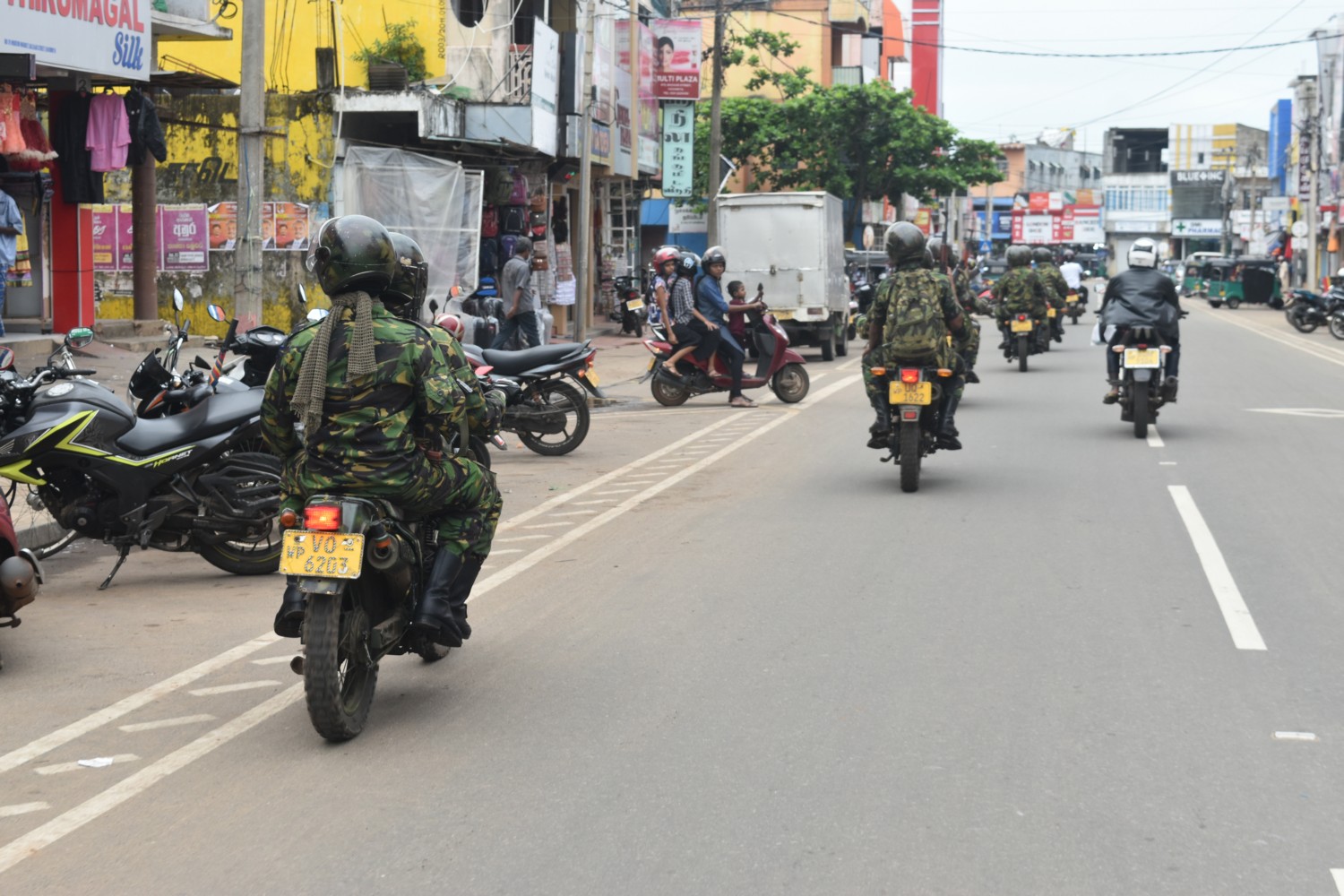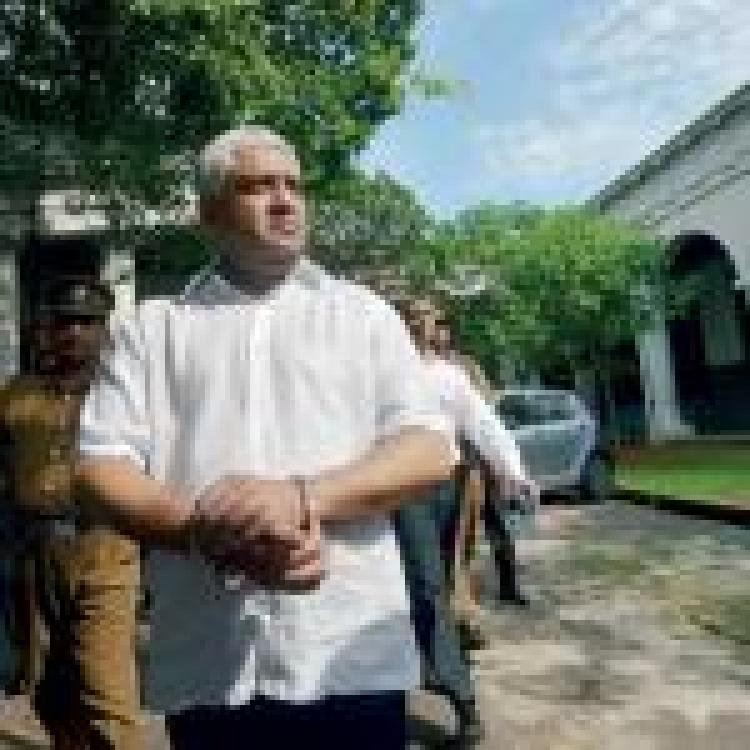
Sri Lanka's police announced the arrests of nearly 15,000 people during a week-long military-backed anti-narcotics drive, a crackdown denounced by rights activists.
Police said their operation, code-named "Yukthiya" or "Justice", led to the seizure of almost 440 kilograms (970 pounds) of narcotics, including 272 kg of cannabis, 35 kg of hashish and nine kilograms of heroin.
Authorities believe the Indian Ocean island is being used as a drug trafficking transit point.
A police statement said 13,666 suspects were arrested while nearly 1,100 addicts were detained and sent for compulsory rehabilitation at a military-run facility.
Human rights lawyer Hejaaz Hizbullah said the police raids were illegal as they were conducted without search warrants and urged victims to get the details of officers to initiate legal action later.
Human Rights activist Ambika Satkunanathan posted on social media that the searches were not based on evidence but were "targeting only poor areas".
The police were arresting drug users and small-time dealers but "not focusing on large-scale traffickers", she added.
Sri Lanka's biggest drug haul by weight was in December 2016, when police seized 800 kilograms of cocaine.
2/ Given the amount of drugs likely in circulation and reports of supposed increase in drug use, this is a small quantity, esp in comparison to time and resources spent. It shows they, to date, have mainly targeted users and dealers at bottom of the trafficking/sale hierarchy.
— Ambika Satkunanathan (@ambikasat) December 23, 2023
Earlier this month, Tiran Alles instructed police to use "maximum force" against suspected criminals, stating the police will locate alleged drug dealers and "shoot them".
Speaking at a press conference announcing the commencement of the island-wide drug operations. Alles went on to say that organised criminals "will end up being killed by the police or the enemy". He further added that state forces would "locate them" and that "there will be a shootout and they will end up being killed". The sitting public security minister has been implicated in financial fraud by misappropriating 124 million Sri Lankan rupees from December 2006 to 8 February 2009. Alles was also recently named in the Pandora papers for having used a network of shell companies based in the British Virgin Islands to own properties across London.
The selling and use of drugs across the North-East have been rising since the end of the armed conflict. The former Chief Minister CV Wigneswaran stated in 2015 that Tamil youth are being pushed into drugs and prostitution with the help of the Sri Lankan military and in recent years high profile arrests of Sri Lankan military and Police for drug possessions are common. Sri Lankan state forces have been implicated in drug trafficking, over a dozen Sri Lankan police officers from the country’s Police Narcotic Bureau (PNB) were arrested for their alleged involvement in an illegal drug ring. Speaking in parliament in 2020 JVP MP, Vijitha Herath, claimed that the murder of Makandure Madush, a notorious drug “kingpin” who was under police custody at the Maligawatte Housing complex, was done to protect 80 politicians complicit in drug trafficking. The rise in drug use and trafficking is alleged to have been connected to senior Sri Lankan politicians. Under the guise of eradicating the 'drug menace', surveillance and harassment of the Tamil populace have been increasing and militarisation of Tamil land has become rampant.
Read more at the Hindu

